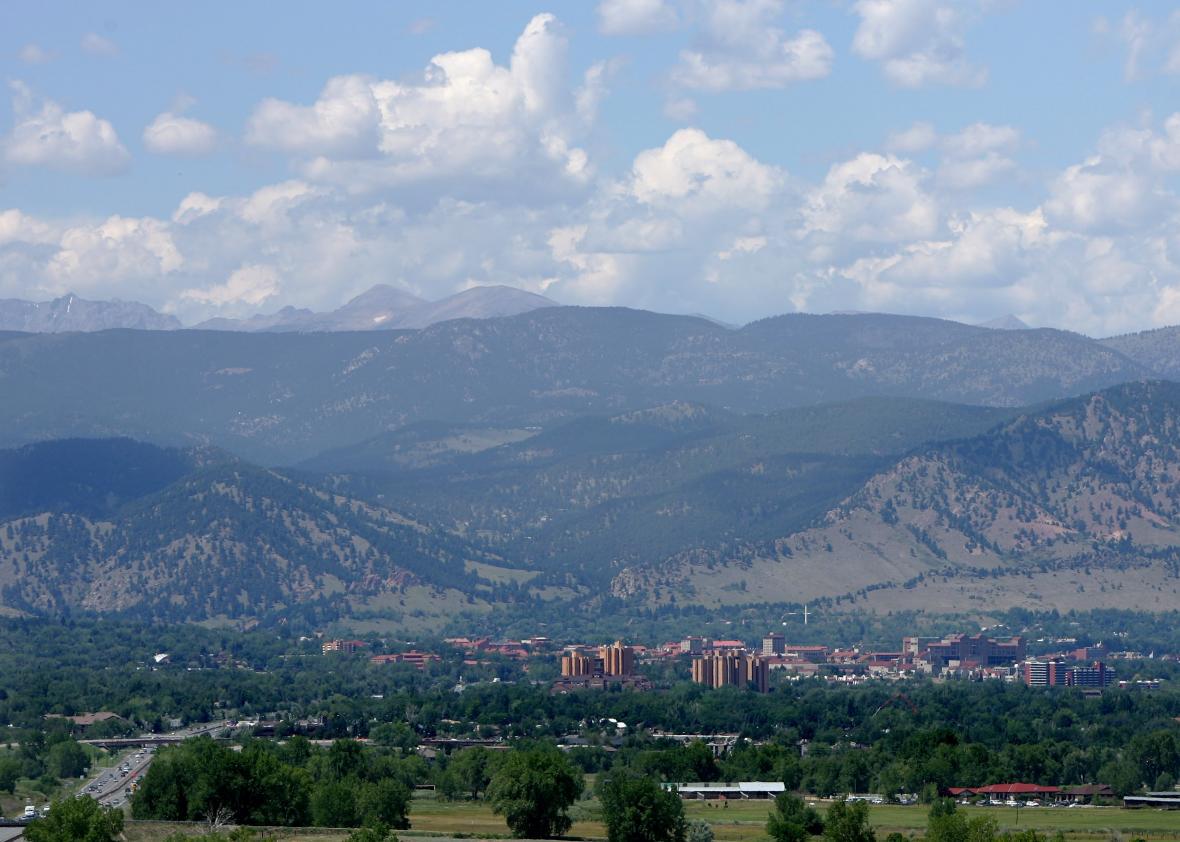Camilo Casas’ campaign for the Boulder City Council hinges on a single question: What if you could directly influence your representative’s vote with a few taps of your smartphone? Casas wants to offer voters that opportunity with Parti.vote, a “liquid democracy” platform of his own design that would allow residents of Colorado’s yuppiest city to directly influence Casas’ actions on the city council. As with most tech-meets-world solutions, it has aspirational potential but also serious pitfalls.
In Casas’ single campaign video, he explains his goal of “bringing to democratic participation into the digital era.” Here’s how the Parti.vote system would work, should Casas be elected. After his team had verified a user’s identity, Parti.vote would allow Boulderites to cast a ballot on any issue up for a vote before the council. Casas, regardless of his personal opinions, would vote in accordance with the majority of the app’s users. And Parti.vote would come with a delegate system, so constituents could entrust their votes to another user, as well as an auto-vote feature that would align them with a chosen council member.
Casas, a 32-year-old Oxford graduate, explains in the video that his platform addresses what he sees as a mismatch between voters’ dissatisfaction with local government and actual engagement with their representatives. While Casas is one of the first public officials in America to run on the promise of an app, the fundamental idea behind Parti.vote—the marriage of tech and liquid democracy—has cropped up in other countries, like Argentina (where Partido de la Red, or “the Net Party,” has created the DemocracyOS open-source website) or Australia (in 2016, the Flux Party backed 13 candidates but gained only a sliver of the vote). Hollie Russon-Gilman, a fellow in New America’s Open Technology and Political Reform Program, said in an email, “The Casas proposal is exciting, because the United States is in need of interventions and experiments in democracy.” (Disclosure: New America is a partner with Slate and Arizona State University in Future Tense.) Liquid democracy, in its ideal, presents a way to shake off the influence of big donors and political calculations on American politics.
In an interview with the Daily Camera, a local publication, Casas said that it’s a well-suited incubator for liquid democracy. “It’s here or Palo Alto or Berkeley, basically,” he says. And demographically, Boulder might be optimal (organic, of course) soil for tech-boosted liquid democracy to sprout. Thanks to the University of Colorado Boulder—nearly 25,700 of its students reside in the city proper—Boulder skews young (and by extension, tech-savvy); nearly one-third of its population are between 15 and 24. The wealthy mountainside city’s also the site of a $131 million new Google campus and ranks third in the U.S. in entrepreneurial density, so it’s not exactly technology-shy.
But while Parti.vote might find users in Boulder, it—like any attempt to completely change the way we hold elected officials accountable—faces some substantial challenges. Russon Gilman says it’s crucial “to ensure that traditionally marginalized viewpoints are empowered to use the app. This requires taking into account who has digital literacy and broadband connectivity.” According to 2016 data from the American Community Survey, 83.5 percent of residents have a smartphone—but that still leaves people behind. Additionally, since the liberal haven of Boulder is strikingly homogenous—88.1 percent identified themselves as white in a 2016 survey—a liquid democracy platform might not offer minority groups like Boulder’s people of color much of a say in issues that could disproportionately impact them. And as the ongoing fallout of Russian interference in the 2016 presidential election shows, ensuring the security of any political app is critically important.
Casas himself admits the odds of him winning are slim. He’s one of 14 people running for five open seats and has a bare-bones online presence. (At the time of publication, Casas’ video had fewer than 800 views.) But a central goal in his campaign is simply to introduce the idea of liquid democracy as viable.
It might be catching on, thanks in part to an article from Motherboard, Vice’s tech site, that got some heat on Reddit. Boulder voter Cha Cha Spinrad wrote to the Daily Camera that she supported Casas because he “doesn’t pretend to know things he doesn’t. He doesn’t pretend to have opinions on things he doesn’t care about. I am drawn to politicians who aren’t politicians, rather honest people who want to positively impact their community.” Her language recalls the fed-up-with-Washington-insiders frustration that helped sweep Trump into the White House, transposed to a Birkenstock-wearing, Sanders-sticker-toting city. Maybe she sees, in Casas’ vision of liquid democracy on your smartphone, a tech-utopian solution.
